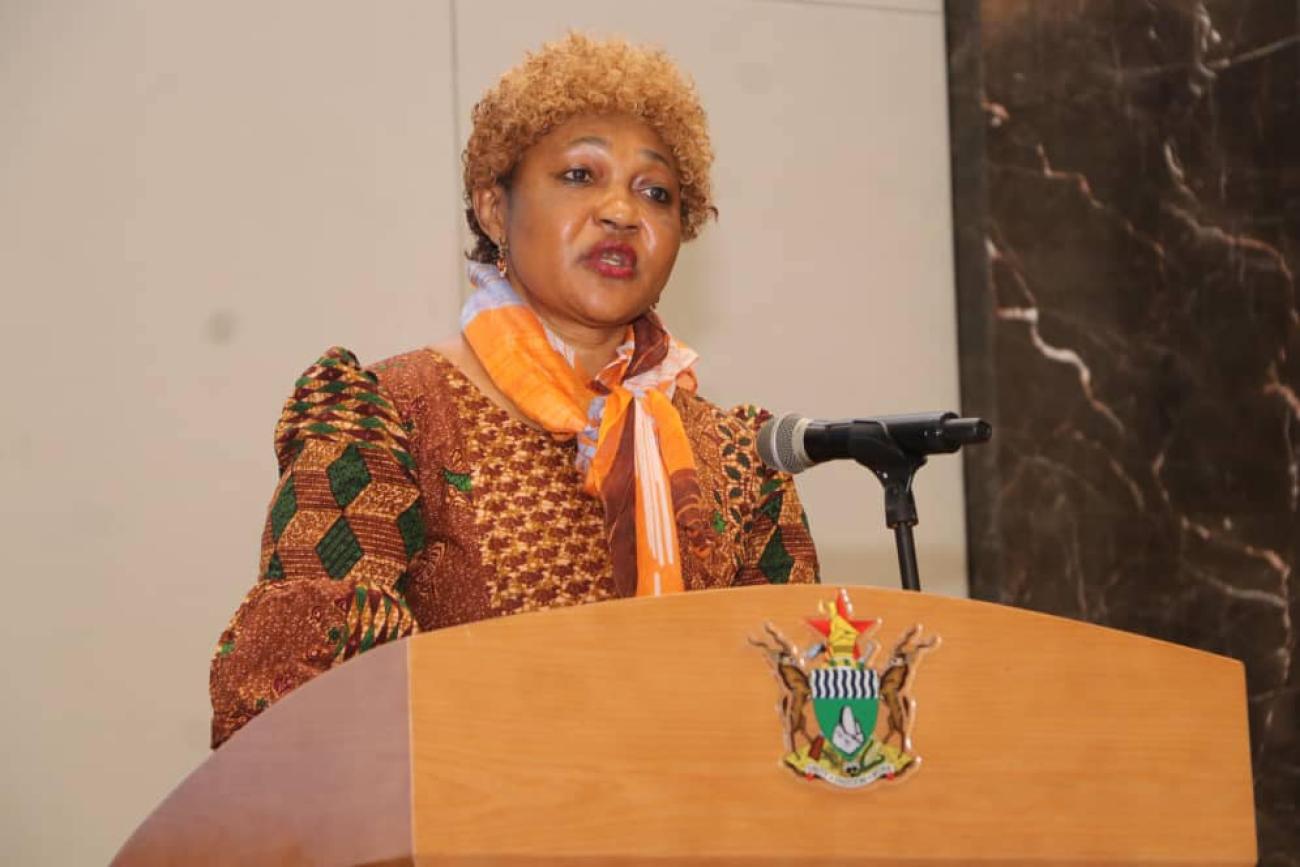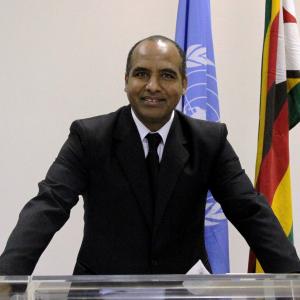Harare, 13 September 2024 – The United Nations, supporting ongoing national health programmes and priorities, is championing enhanced sexual and reproductive health rights (SRHR) in Zimbabwe, as highlighted by Mrs. Miranda Tabifor, the UNFPA Representative and Chairperson of the UN Programme Management Team.
Speaking on behalf of UN Resident and Humanitarian Coordinator Mr. Edward Kallon at a sensitization event in the Zimbabwe Parliament, Mrs. Tabifor emphasized the critical need for ongoing efforts in SRHR and HIV/AIDS.
The event brought together key government officials, including Advocate J. Mudenda, Speaker of Parliament; Mr. K.M. Chokuda, Clerk of Parliament; Hon. Senator Mabel Chinomona, President of the Senate; and Dr. Bernard Madzima, CEO of the National AIDS Council. It marked a significant occasion celebrating the 30th anniversary of the 1994 International Conference on Population and Development (ICPD).
During her remarks, Mrs. Tabifor acknowledged Zimbabwe's strides in advancing SRHR and addressing HIV/AIDS, pointing to declines in maternal mortality and enhancements in family planning services. However, she underscored that sustained efforts are imperative to ensure universal access to these rights for all Zimbabweans.
The UN Joint SRHR/HIV Team, which includes UNAIDS, UNFPA, UNICEF, and WHO, is collaborating closely with the Zimbabwean government to bolster SRHR policies, programs, and funding. Mrs. Tabifor commended the recent commitments from Parliamentary Portfolio Committees and relevant ministries to increase domestic allocations for contraceptives, an initiative that promises significant benefits for the health and welfare of women and youth across the nation.
This commitment positions Zimbabwe as a leader in the East and Southern Africa region, enhancing support through UNFPA’s Supplies Global Partnership.
Moreover, Mrs. Tabifor stressed the necessity of strengthening integrated services for SRHR and HIV/AIDS. She acknowledged the government's Human Resources for Health Strategy and the Health Workforce Investment Compact, both aimed at addressing the critical issue of health workforce attrition in the country.
To further advance these SRHR and HIV initiatives, Mrs. Tabifor highlighted the importance of involving traditional, religious, and community leaders, as well as engaging men and boys in the conversation.
This inclusive approach is vital for transforming social norms and increasing the demand for SRHR and HIV services among vulnerable populations.
She urged Parliament to continue its support for domestic funding of SRHR and HIV programmes, as part of a sustainable healthcare framework essential for achieving the Sustainable Development Goals (SDGs) and national health strategies.
Mrs. Tabifor expressed optimism regarding Zimbabwe's legislative initiatives to enhance SRHR policies, programs, and resources, thanking Parliament for its dedication to the health and well-being of its citizens.







